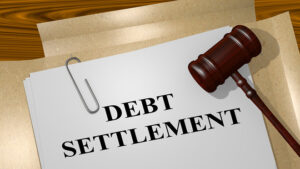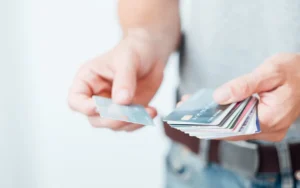Getting out of debt can feel overwhelming, but the right budgeting strategy can accelerate your journey to financial freedom. Smart budgeting doesn’t just track your spending—it creates a roadmap that helps you pay off debt more efficiently while building healthier financial habits. These proven techniques will help you take control of your finances and eliminate debt faster than you thought possible.
Assess Your Current Financial Situation
Before creating any debt repayment plan, you need a clear picture of where you stand financially. List all your debts, including credit cards, loans, and any money owed to family or friends. Please record the balance, minimum payment, and interest rate for each debt. Next, calculate your total monthly income and track your expenses for at least two weeks to understand your spending patterns. This honest assessment reveals exactly how much money you can realistically allocate toward debt repayment each month.
Create a Realistic Budget
A successful budget balances your needs with your debt repayment goals. Start with the 50/30/20 rule as a foundation: 50% of your income covers necessities, 30% goes to wants, and 20% tackles debt and savings. However, when you’re focused on debt elimination, consider adjusting your budget to 50/20/30, putting more money toward debt repayment. Use budgeting apps or a simple spreadsheet to track every dollar and ensure you’re not overspending in any category.
Prioritize High-Interest Debt
High-interest debt costs you the most money over time, so tackle it aggressively. The debt avalanche method focuses on paying minimums on all debts while putting extra money toward the highest interest rate debt first. This approach saves you the most money in interest charges. Alternatively, the debt snowball method targets the smallest balances first, creating psychological wins that keep you motivated. Choose the strategy that best fits your personality and financial situation.
Increase Your Income
Extra income accelerates debt payoff significantly. Consider taking on freelance work, selling items you no longer need, or picking up a part-time job. Even an additional $200 per month can cut years off your debt repayment timeline. Search for opportunities within your current job too—ask for overtime, pursue a raise, or explore side hustles that use your existing skills. Every extra dollar earned should go directly toward debt repayment for maximum impact.
Reduce Expenses
Cutting expenses frees up more money for debt payments without requiring additional work hours. Review your monthly subscriptions and cancel services you don’t regularly use. Cook meals at home instead of dining out, find free entertainment options, and shop with a list to avoid impulse purchases. Small changes add up quickly—saving $5 per day equals $150 more toward debt each month. Focus on reducing variable expenses first, as these are often easier to cut than fixed costs like rent or insurance.
Automate Savings and Debt Payments
Automation removes the temptation to spend money that should go toward debt repayment. Set up automatic transfers to move extra money to debt payments immediately after payday. This “pay yourself first” approach ensures debt repayment happens before discretionary spending. Also automate a small emergency fund contribution—even $25 per month builds a buffer that prevents you from adding new debt when unexpected expenses arise.
Monitor and Adjust Your Budget
Your budget needs regular attention to stay effective. Please review your spending on a weekly basis and compare it to your planned budget. If you consistently overspend in certain categories, either adjust the budget to be more realistic or find ways to better control that spending. Celebrate milestones when you pay off individual debts, as these victories provide motivation to continue. Track your total debt balance monthly to see your progress and stay motivated during challenging times.
Seek Professional Help If Needed
Sometimes debt feels too overwhelming to handle alone, and that’s okay. Credit counseling services can help you create a debt management plan or negotiate with creditors for better payment terms. If you’re considering bankruptcy or struggling to make minimum payments, consult a financial advisor or attorney who specializes in debt relief. Getting professional help early can prevent your situation from getting worse and provide strategies you might not have considered.
Take Control of Your Financial Future
Budgeting your way out of debt requires commitment, but the freedom you’ll gain is worth every sacrifice. Start with one or two strategies from this list rather than trying to implement everything at once. Small, consistent changes create lasting results that compound over time. Remember that setbacks are normal—what matters is getting back on track quickly and learning from any mistakes. Your debt-free future is closer than you think with the right budgeting approach and determination to stick with it.
FAQs
1. Could you please let me know the typical timeframe for paying off debt using these budgeting methods?
The timeline depends on your total debt amount, income, and how much extra you can put toward payments. Most people see significant progress within 2–5 years of consistently following a structured plan.
2. Should I pay off debt or save money first?
Focus on building a small emergency fund of $500 to $1,000 first, then aggressively pay off high-interest debt. Once debt is eliminated, you can build a larger emergency fund.
3. If I am unable to meet the minimum payments on all my debts, what should I do?
Please reach out to your creditors at your earliest convenience to discuss payment options. Many offer hardship programs that can temporarily reduce payments or interest rates. Consider credit counseling services for professional guidance.




